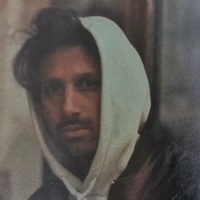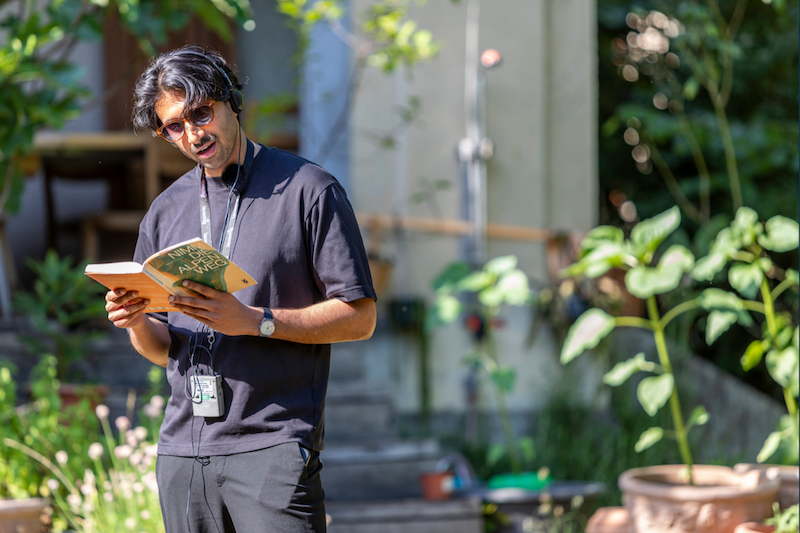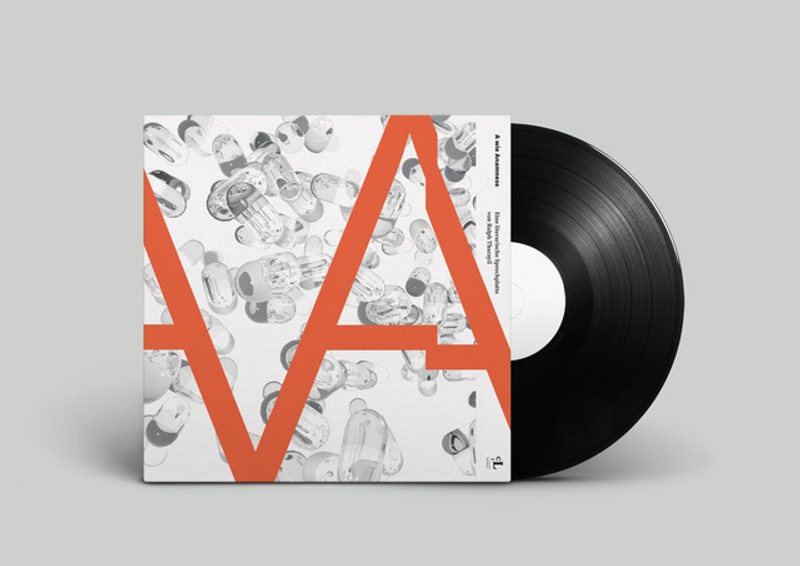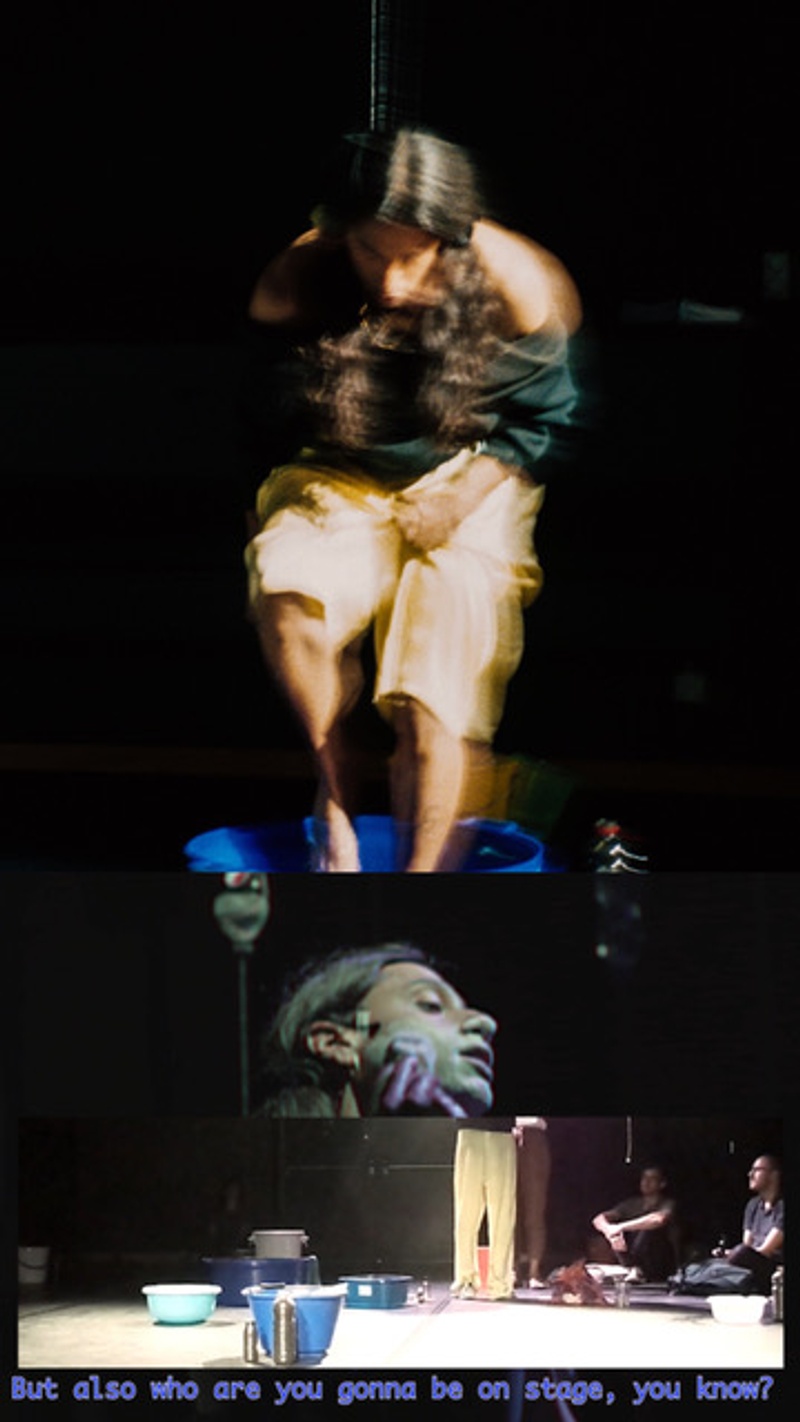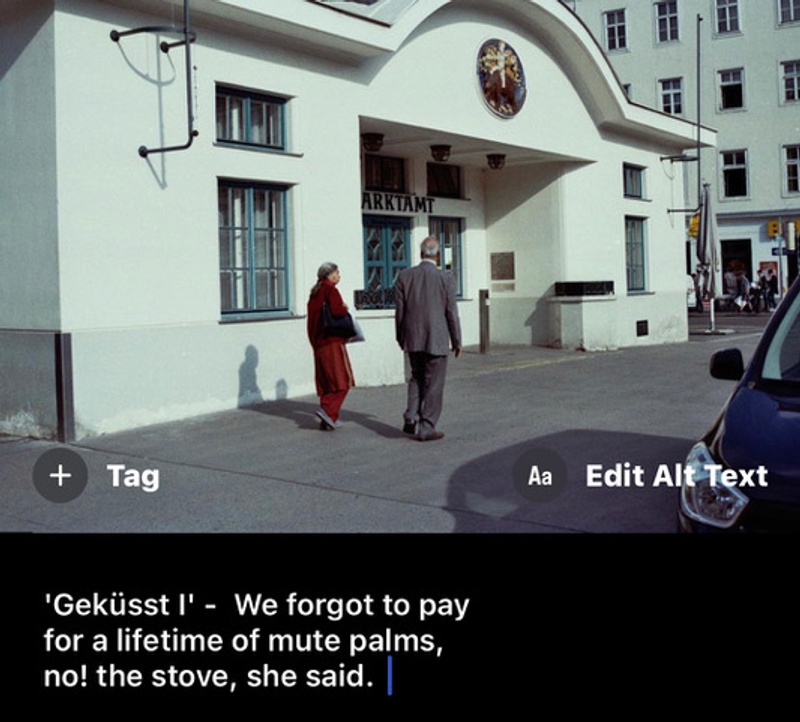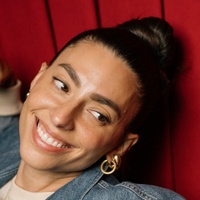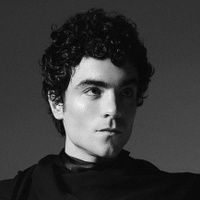As told to Grashina Gabelmann, 2036 words.
Tags: Writing, Theater, Process, Identity, Collaboration.
On waiting and believing
Writer Ralph Tharayil discusses the romanticization and physicality of writing and the privilege of being able to look at art from a distance.What’s your creative practice?
I think I would consider myself someone who writes and presents that writing in different forms and formats—be it text, audio or performance. My debut novel Nimm die Alpen web (Take the Alps away) came out in February this year and as a theatre maker I’m currently invested in a research about “exotic” dancer Mata Hari who posed as a South Indian temple dancer in the early 20th century. I started playing music when I was 11, music was my first creative practice, so to speak. I’m trying to pick the guitar up again which I haven’t done in a long time.
Did you spend so much energy on your book you didn’t have space for music?
Writing did take everything, every resource, every ounce of strength I had to just maintain and sustain myself. Writing is a physical act and it took a while to understand that. Positioning my body in front of a desk every day in the same manner, I extend my arms, my fingers, my wrists, waiting for something to happen, a good thing or bad thing.
Whereas in front of an instrument, I feel like, there’s not as much waiting or lingering, it’s less being a spider waiting for its prey…which is how I feel when I write. And when I’m playing music, I feel like I’m more like a…what animal could I be? An octopus maybe.
Octopuses have multiple neuronal networks that extend into their limbs. The connection between mind and body is different when I’m playing an instrument. Conjuring a musical sentence on a musical differs from conjuring sentences with the body as instrument in the way that musical sentences are not as adamantly connected to the realm of semantics as linguistic sentences are.
Reading Nimm die Alpen weg (2023)
I’ve never heard of someone speaking about a lingering aspect when it comes to writing. Maybe you could go more into that. Do you mean that sometimes you literally just sat there and did nothing and waited for the words to come for you to put out?
It sounds corny when I put it like that of course: “I’m just sitting and waiting.“ I have other ways of writing too, especially when working in theatre, exploring a specific subject or theme, when writing is an integral part of listening, of talking and sharing thoughts with collaborators which I enjoy as well.
I don’t want to romanticize the act of writing itself by saying that, rather make a point for the integrity of writing as an art form or as a practice. So many writers say that to write means to read. I share that notion. So when I say I wait and I linger like a spider, what I mean is that I read, and I read very slowly, cautiously. I’m caught up in the web of my tumbling thoughts. They very quickly build a specific structure in my brain where I see the word as actual material in front on me. Sometimes I see colors or I have a color in my mind when I read the text, sometimes its a visual pattern that builds semantic coherence in my brain. And so there’s a very specific hesitancy when it comes to reading too much because I don’t want to be influenced too much by the language or the structure since, obviously, I’m trying to do my own thing. Only after a while did I realize I’m always going to do my own thing. It took a long, long time, maybe 15 years, until I realized that—it’s always going to be me. And sometimes that’s a nice thing. And a lot of times, that’s terrible.
Why is it terrible a lot of times?
Because I’m trying to get rid of myself when I’m writing, right? I’m trying to transform not just the story itself, but myself, me, myself, within the story. And if I come out at the other end and I’m just like, “fuck,” but this is just another iteration to end up where I started, that can be very frustrating. So yeah, that’s what I meant by waiting. Reading and believing that reading other writers’ texts is meaningful. And not consuming, not reading just to get specific information for your research. Sometimes I read completely nonsensical stuff while writing, stuff that has nothing to do with what I’m researching. There are so many primary texts I need to read to research my new book, but there are so many texts I just pick up and read. Books are scattered in my room, and sometimes I just get up and pick up a book and flick through it while pacing the room…I’ll read a page, half a page. And since my brain is already wired and configured in a way where I’m looking specific themes, I tend to find unexpected information. So that is kind of freeing in a way. It’s a way of making a text less rigid.
Still from the autofictional performance KeshavaTharayil (2021)
And when you start writing?
Things are being written and overwritten and overwritten again and again, you have to sort of scrape off so many layers until you find what you really want to say. I go through the layers and I’m trying to gauge which layer I want to make visible. And within those layers of expression I’m trying to find the sweet spot where the visible becomes invisible, and the invisible becomes visible.
You mentioned earlier that you don’t want to romanticize writing. How you think writing is romanticized?
My parents belong to the Syrian Orthodox Christian community of Kerala, a state in the South of India. They migrated to Switzerland in the 1980s. After their arrival they worked in hospitals and factories all their life, despite their educational degrees they had obtained in India. My parents are not familiar with art, and they’re not keen on art either. I think they’re trying to find a sort of gateway towards art through me and my sibling who is a poet and performer but inherently, they’re not really fond of it. Not because they despise art but because they didn’t learn how to understand art as a possible counter expression to the rigid happenings in the world, to enjoy it, analyze it, and see the world through it. It’s about education. You don’t have to be educated to be touched by an art work, not at all. But to understand why your kids chose to confront the world in the artistic way they do, you would have to learn what art can be and what art can do. It’s a question of class and it’s a privilege to have the financial resources and time, to enjoy art and think about art as an institution within institutions and society.
And I think people who have the privilege to look at art from a distance, to look at the aesthetic production, they tend to, due to their class, to look at art as just something beau, as something nice when the physical, political and economic reality of it is not. As part of that writing too is romanticized within that classist notion.
A wie Anamnese Audio Play printed on Vinyl (2020)
And since there’s a disconnect between aesthetic production and aesthetic reception, the reception side is on the spectrum of romanticizing. And because it inspires you as the art consumer, you don’t have to think about the labor. You just have to think about the story that is being told to you by the curator or the artist themselves and what they want the world to see. I’m not blaming the people who do this. I understand. We all need stories to survive, and romanticizing is one way to make up a story. But I just feel, for me as a person who is trying to produce aesthetically, I think there’s a responsibility to know what the conditions of art production are. What is the context, the class context, the geographical context, the geopolitical context. Me producing in Berlin, as a Swiss passport holder of South Indian descent from Kerala, a very privileged state in India…Those contexts have to be there when I produce. It is my responsibility to take that into account.
What’s your meaning of creativity in relation to writing
I don’t think you have to be a writer to be creative. I don’t think you have to be a painter to be creative. I think within the aspect of class and the aspect of flight, migration, and exile, being creative means only one thing: surviving. So if that is the definition of creativity, then a lot of people are creative and a lot of people are way more creative than I am, not that it’s a competition. More positively put: people who are creative find a way out of misery. They just find a way of hacking their brain to make themselves content in the way they exist in one way or the other, if only for a short period of time, and that itself is a creative act. Cooking meals, investing money, folding cloths. You yourself and others don’t have to acknowledge it as creative but it can be. The cherry on top is if you can make a living with that. Talking about creativity: the stuff that I really love is stuff that is coming from a place that I cannot fathom. Not as a writer, but as a reader. I just do not know how this person produced this work. As if the fire was brought down from the gods. That’s how it feels. And you can carry the book with you, as your torch. And I have experienced that in reading. After having said all of this, frankly I don’t know how to create and then make a factual statement about creativity.
Still from the performance also known as MATA HARI (until i expire) (2023)
So when you sit down and write, it’s not you being creative?
No, when I sit down and write, it’s just me being me. Me having no other way to confront myself. And also letting go of myself and trying to find something out about myself, about the world that surrounds me, about the way I construct a character or don’t, the way I construct, shape a story or don’t, the way I deny myself a specific pleasure or don’t by, for instance, continuing the paragraph, although I know after it, I don’t know how to continue.
And how does the aspect of you work with several disciplines play into this?
I think the reason why I’m speaking like this, abstract, vague, always on the verge of being esoteric is because, I think, I’m working in different disciplines. I’m trying to gauge what the form I am working in needs for me to be engaging. Be it audio, be it writing on paper, be it theatre. They’re all connected to text, but they’re connected to so many other things. In literary writing, the text, the body of the text is connected to the silence of the body that is sitting in front of the text and the silence of the hands. In theatre, the text is connected to the embodiment of the body on stage. In audio, the text is connected to the inner imagination of the world that we hear in our mind. So they’re all different aspects of how we confront our imagination of reality.
And I’m just trying to sort of find a way, a loophole to enter all these worlds while maintaining a commonality in genuine expression.
Geküsst I (2018)

